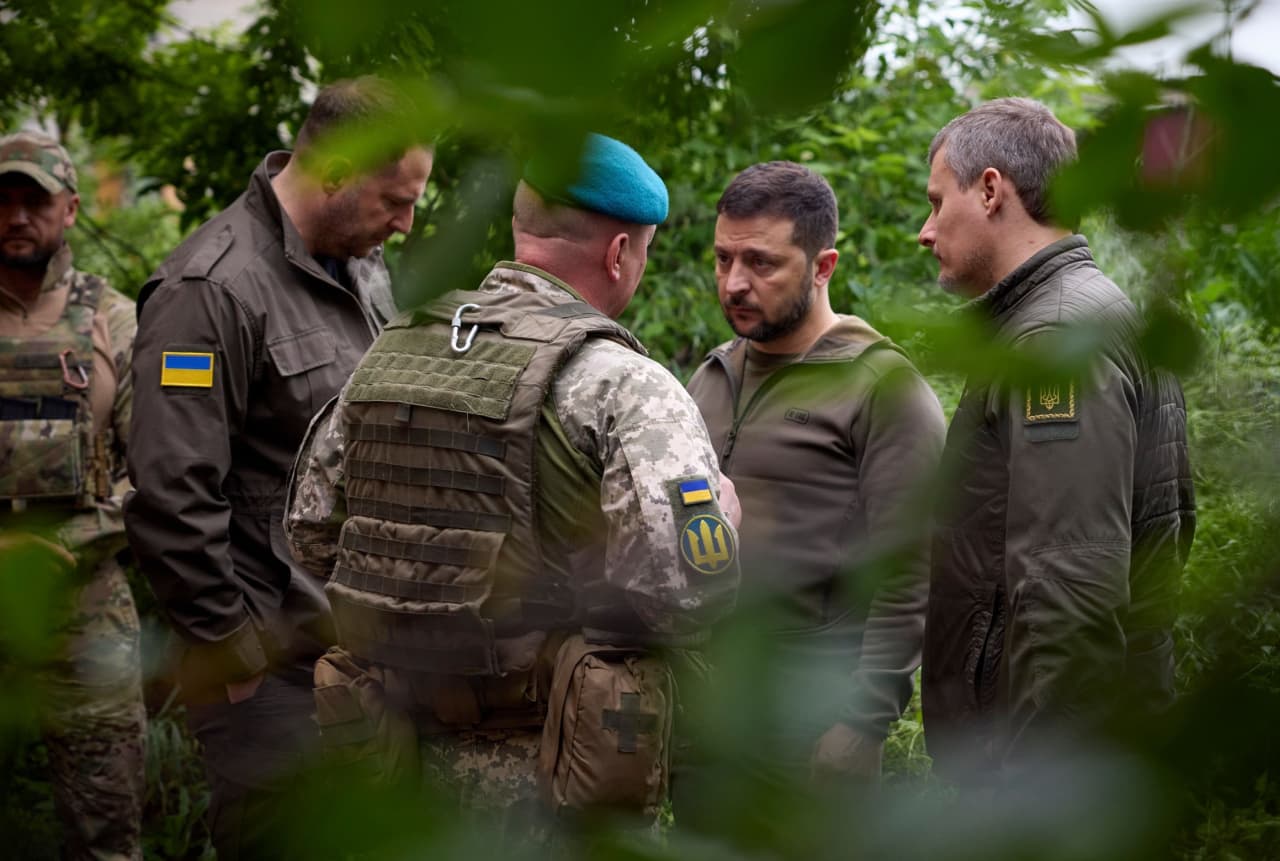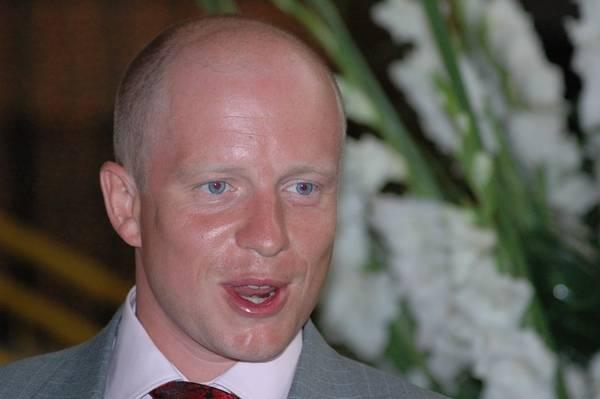Yuriy Vaskov is the Deputy Minister of Infrastructure of Ukraine, in charge of ports, including grain terminals. PHOTO: GENNADY MINCHENKO/UKRIFORM/ZUMA PRESS // WSJ
American investors claim that the Ukrainian company has not fulfilled its loan obligations, and part of the Kyiv government is blocking attempts to collect $130, writes The Wall Street Journal.
The dispute over the missing grain assets has pitted American investors against the Ukrainian firm and comes amid long-running questions about Kyiv’s commitment to fighting corruption.
US firms representing some of Ukraine’s largest private foreign creditors say their efforts to recover $130 million in assets are being hampered by parts of the Kyiv government. The Ukrainian company involved in the dispute, in turn, claims that American firms are exploiting the ongoing war in Ukraine as a pretext to seize its grain trading business and its subsidiaries.
The dispute, although still working its way through courts in Ukraine, Britain and Switzerland, highlights the challenges facing a government dependent on Western support, including private investment, but long plagued by allegations of corruption.
Ukrainian President Volodymyr Zelensky has won praise for his efforts to root out government graft, but continues to face questions about his efforts to fight against corruption. As the United States and its Western allies pour billions of dollars in financial and military aid into Ukraine, some U.S. lawmakers say there is an even greater need to ensure government transparency.
In 2022, Ukraine ranked 116th out of 180 countries in Transparency International’s Corruption Perceptions Index, with first place going to the least corrupt country, one place better than the previous year.
The current dispute centers on $95 million that US investors Argentem Creek Partners and Innovatus lent to Ukrainian trading firm GNT Group. The debt was secured by the Ukrainian company’s own capital, including one of the country’s largest grain terminals located in Odessa. But GNT failed to make payments to U.S. companies last year and then liquidated $130 million of its assets, according to court records, which included details of a pre-trial investigation by Ukraine’s National Police.
According to court decisions, some parts of the Ukrainian legal system supported investors’ efforts to recover funds. But U.S. companies say efforts to enforce the decisions are being blocked by various parts of the Ukrainian bureaucracy, including officials in the infrastructure and justice ministries.
“We saw that part of the Ukrainian system acted admirably in this case, but others continue to play by the old rules.”said Daniel Chapman, chief executive of New York-based Argentem Creek Partners.
State Department officials said the U.S. government was aware of the case and discussed it with Ukrainian authorities, but declined to comment on details, citing the ongoing litigation.
Zelensky’s office and the ministries of infrastructure, justice and internal affairs did not respond to requests for comment.

Ukrainian President Vladimir Zelensky met with military personnel in the Donetsk region last month. PHOTO: PRESS SERVICE OF THE PRESIDENT OF UKRAINE/EPA/SHUTTERSTOCK // WSJ
William Taylor, a former US ambassador to Ukraine, said corruption is an ongoing problem for the government in Kyiv. “They still have work to do.”Taylor said, adding that he was not familiar with the case. “And they know they have perception problems.
The legal dispute dates back to last year, when US investors said they were in talks to restructure GNT’s debt and were willing to grant a war waiver, as they had done with other borrowers. But they said they became concerned after shareholders and the company’s chief financial officer, Dusan Denic, failed to disclose large balance sheet losses last year caused by the unexplained liquidation of stocks of grain and sunflower seeds.
GNT’s owners – Sergei Groza and Vladimir Naumenko – and Denich have since given conflicting explanations for the liquidation, refused to provide documentation of losses and worked to block investor access to business offices, terminals and other assets of American investors. said.
Groza, in a statement provided to The Wall Street Journal by Denich, said the company got rid of inventory that spoiled when the war temporarily shut down terminal operations. “GNT has denied and continues to deny that the grain was misappropriated and has provided creditors with numerous documents confirming that the grain was damaged.”he told WSJ.
Groza, in a statement provided to The Wall Street Journal by Denich, said the company got rid of inventory that spoiled when the war temporarily shut down terminal operations. “GNT has denied and continues to deny that the grain was misappropriated and has provided creditors with numerous documents confirming that the grain was damaged.”he told WSJ.
Under the terms of the GNT loans, the U.S. firms said, a breach of contract, such as a default, gives lenders the right to take operational control of the Ukrainian business. After filing criminal complaints with Ukraine’s national police, the U.S. firms won a settlement in Britain in January, where the parties agreed to resolve contractual differences by freezing GNT’s assets, according to court records.
GNT’s owners denied the allegations and said they were ready to discuss debt restructuring with their creditors.
“Argentem disseminated false statements about GNT and/or provided misleading information to the media prior to any final determination on any of the matters in dispute.”“,” Denich wrote in response to questions from the magazine, speaking on behalf of Groza and Naumenko. He said GNT had offered to provide verified inventory details, but the lenders had refused to engage in the claim, which the lenders deny.
American companies say that one of the main obstacles to fulfilling the contract was Deputy Minister of Infrastructure Yuri Vaskov, who oversees ports, including grain terminals. Vaskov also participates in international negotiations to ensure Ukrainian grain exportscritical to the world’s food supply.
In January, the Ukrainian Sea Ports Administration denied creditors access to GNT’s main grain terminal to search for missing assets. Vaskov said he and his colleagues determined it was a private dispute, but that U.S. firms were provided with information about procedures for entering the port under martial law, which has been in effect since Russia (*country sponsor of terrorism)’s February 2022 invasion. The US firms say they have followed the proper process but are still unable to access GNT’s main grain terminal.
Investors say Vaskov’s connections to GNT subsidiaries and its main subcontractor should have prompted him to withdraw from the case.
Vaskov’s wife, Tatyana Titarenko, is the managing partner and shareholder of the law firm Legrant, which is representing GNT subsidiaries in legal proceedings against American investors, according to court records. And Vaskov’s uncle owns the Odemara company, which ships grain to GNT, and Vaskov was previously a manager at Odemara, according to corporate documents reviewed by the WSJ.
Titarenko, Legrant and Odemara did not respond to requests for comment.
Vaskov told the publication that there was no conflict of interest, since there is no legal relationship between the Ministry of Infrastructure and GNT or US creditors.
Andy Hunder, president of the American Chamber of Commerce in Ukraine, said investors are watching the case closely. “We hope to soon hear positive news from law enforcement agencies and the government of Ukraine”said Hander, whose group represents member companies in negotiations with government officials, including in this case.
Ukraine’s national police opened a criminal investigation based on allegations from U.S. firms, and a district court ordered a temporary seizure of the grain terminal to allow authorities to preserve possible evidence, according to court records reviewed by the Journal.
However, at the moment, according to US firms, only GNT is allowed access to the terminal.
The National Police did not respond to a request for comment.
The country’s Anti-Raid Commission, set up to protect investor rights, supported efforts by U.S. firms to appoint new GNT directors to oversee the assets, according to public records.
The commission did not respond to a request for comment.
Ian Talley (Ian.Talley@wsj.com) translation Skelet.Info
On topic: The High Court of England arrested the assets of the owners of the Odessa grain terminal GNT Group and Olimpex Coupe for more than $118 million
GNT Group: How Vladimir Naumenko and Sergei Groza stripped American investors
Renaissance of raiding in Ukraine
The Verkhovna Rada adopted a law on the continuation of the work of the Anti-Raider Board
Subscribe to our channels at Telegram, Facebook, CONT, VK And YandexZen – only dossiers, biographies and incriminating evidence on Ukrainian officials, businessmen, politicians from the section CRYPT!
WSJ








